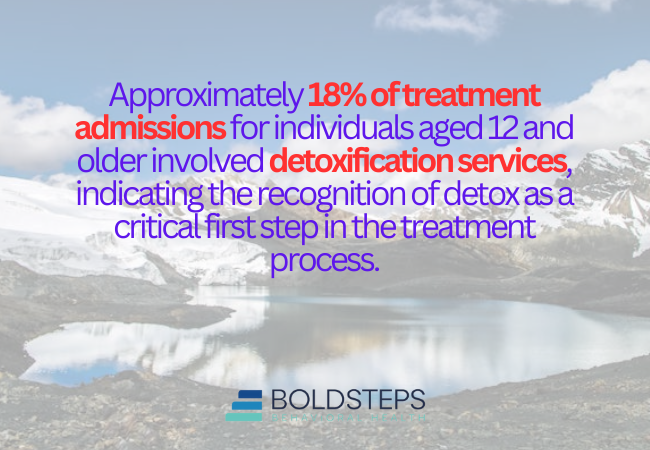Recovery from drug and alcohol addiction is a deeply personal and transformative journey. Choosing to enter a drug rehabilitation center is one of the most significant steps a person can take toward reclaiming their life. At Bold Steps Behavioral Health, we provide the support, guidance, and evidence-based treatments needed to make recovery possible.
If you or a loved one are considering treatment, it’s natural to feel uncertain about what lies ahead. This detailed guide will walk you through what to expect at a rehabilitation center for drugs, helping you feel more prepared and empowered as you take this bold step forward.
1. Initial Assessment: Building a Personalized Treatment Plan
Your recovery journey begins with a comprehensive assessment. This step ensures that your care plan is tailored to your specific needs. During this process, you can expect:
- Medical Evaluation: Healthcare professionals will assess your overall health, identify potential complications, and determine if medical detox is necessary.
- Substance Use History: The team will gather detailed information about the substances used, the duration of use, and any prior attempts at treatment.
- Psychological Assessment: This evaluation identifies any co-occurring mental health disorders, such as anxiety, depression, or PTSD, that may require dual diagnosis treatment.
Based on these assessments, a personalized treatment plan is developed. This plan may include services such as detox and rehab centers, partial hospitalization programs (PHPs), intensive outpatient programs (IOPs), or outpatient treatment.
2. Detoxification: Clearing the Body of Substances
For many patients, the first phase of treatment involves detoxification. Detox is the process of safely removing substances from the body under medical supervision. At detox and rehab centers, patients receive round-the-clock care to manage withdrawal symptoms and ensure a safe and comfortable experience.
- Opiate Addiction Treatment: May involve medication-assisted treatment (MAT) with methadone, buprenorphine, or naltrexone to ease withdrawal and cravings.
- Alcohol Addiction Treatment: Medical supervision is essential for managing symptoms like seizures or delirium tremens during alcohol detox.
- Benzodiazepine Treatment: A gradual tapering process is often used to minimize withdrawal risks and ensure safety.
- Stimulants Treatment: Detox focuses on managing psychological withdrawal symptoms, such as depression and agitation.
Detox is a critical first step, laying the foundation for the therapeutic work that follows.
3. Therapeutic Interventions: Addressing the Root Causes of Addiction
Therapy is at the heart of any effective drug rehabilitation center. It addresses the underlying causes of addiction, builds coping skills, and fosters lasting recovery. At Bold Steps Behavioral Health, our therapy options include:
- Cognitive Behavioral Therapy (CBT): Focuses on identifying and changing negative thought patterns and behaviors.
- Dialectical Behavior Therapy (DBT): Helps patients develop emotional regulation, mindfulness, and effective communication skills.
- Group Therapy: Offers a supportive space to share experiences, learn from others, and build a sense of community.
- Family Therapy: Involves loved ones in the recovery process, addressing strained relationships, and fostering understanding and support.
- Holistic Therapies: Includes mindfulness practices, yoga, and art therapy to promote emotional healing and overall well-being.
Each therapy is integrated into your personalized care plan, ensuring a comprehensive approach to recovery.
4. Understanding Program Options at Rehabilitation Centers
At Bold Steps Behavioral Health, we recognize that every individual’s recovery journey is unique. That’s why we offer a range of program options to meet various needs and lifestyles:
- Partial Hospitalization Program (PHP): This program provides intensive, structured treatment during the day while allowing patients to return home in the evening.
- Intensive Outpatient Program (IOP): A flexible option for individuals who need significant support but wish to maintain work, school, or family responsibilities.
- Outpatient Treatment: Designed for those with milder addiction or as a step-down program after completing a more intensive level of care.
Each program is designed to provide the right level of care at every stage of recovery.
5. Relapse Prevention and Life After Treatment
Recovery doesn’t end when you leave the rehab center. Preparing for life after treatment is essential to maintaining long-term sobriety. Drug abuse treatment centers like Bold Steps Behavioral Health focus on creating robust aftercare plans, which include:
- Relapse Prevention Strategies: Learning to recognize triggers and develop healthy coping mechanisms.
- Continued Therapy: Access to individual or group counseling sessions to maintain progress.
- Alumni Support Groups: Building a network of peers who share similar experiences.
- Sober Living Resources: Guidance on transitioning back to independent living while maintaining a structured, supportive environment.
Our aftercare programs empower patients to stay on track and build a fulfilling, sober life.
6. The Role of Family in Recovery
Addiction affects not just the individual but also their loved ones. Family involvement is a key component of recovery, as it fosters a supportive environment for long-term success. At Bold Steps Behavioral Health, we offer:
- Educational Workshops: Helping families understand addiction and recovery.
- Family Counseling: Repairing relationships and improving communication.
- Family Support Groups: Providing a safe space for loved ones to share their experiences and receive guidance.
By involving families in the recovery process, we create a strong foundation for sustained sobriety.
7. Overcoming Common Challenges in Recovery
The path to recovery is not without obstacles. Some common challenges include:
- Fear of Withdrawal: Many fear the discomfort of detox. Medical supervision at detox and rehab centers ensures safety and comfort during this phase.
- Financial Concerns: Treatment costs can be a barrier. At Bold Steps, we accept insurance and offer payment plans to make care accessible.
- Reluctance to Seek Help: Stigma and shame often prevent individuals from reaching out. Our compassionate team is here to provide judgment-free support.
- Balancing Life Responsibilities: Programs like PHPs and IOPs allow patients to receive treatment while maintaining work, school, or family obligations.
By addressing these challenges head-on, we help patients and families navigate the recovery journey with confidence.

Why Choose Bold Steps Behavioral Health?
Choosing the right partner for your recovery journey is essential. At Bold Steps Behavioral Health, we stand out as a trusted leader in addiction treatment, offering compassionate care and personalized support. Here’s why you should choose us:
1. Evidence-Based Treatment Programs
We use proven, science-backed methods to address addiction. From detox and rehab centers to partial hospitalization programs (PHPs) and intensive outpatient programs (IOPs), our comprehensive offerings ensure clients receive the care they need at every stage of recovery.
2. Individualized Care Plans
We recognize that no two recovery journeys are the same. Our team develops personalized treatment plans tailored to each client’s unique needs, goals, and challenges. Whether you need opiate addiction treatment, benzodiazepine treatment, or alcohol addiction treatment, our customized approach ensures effective care.
3. Dual Diagnosis Expertise
Many individuals struggling with addiction also face mental health disorders like depression, anxiety, or PTSD. Our dual diagnosis programs address both addiction and mental health simultaneously, providing comprehensive care for lasting recovery.
4. Compassionate and Experienced Team
Our team of licensed therapists, counselors, and medical professionals brings years of experience and genuine compassion to every interaction. We’re committed to supporting you every step of the way.
5. Emphasis on Family Involvement
Addiction affects families, not just individuals. We offer family therapy and educational resources to help loved ones heal and become active participants in the recovery process.
6. Focus on Aftercare and Long-Term Support
Recovery doesn’t end when treatment does. Our robust aftercare services, including therapy, alumni programs, and relapse prevention planning, provide ongoing support to help clients maintain sobriety for life.
7. Peaceful and Supportive Environment
Our facilities are designed to create a calm and nurturing atmosphere that promotes healing. Located in New Hampshire, Bold Steps Behavioral Health offers a peaceful retreat where clients can focus on their recovery journey.
Take the Bold Step Toward Recovery Today
Transitioning to life after rehab is a critical phase of the recovery journey, and Bold Steps Behavioral Health is here to guide you every step of the way. With our evidence-based treatments, compassionate team, and commitment to long-term support, we are proud to be one of the best rehab centers in New Hampshire.
If you or someone you love is ready to take the next step, contact us at (603) 915-4223 or visit Bold Steps Behavioral Health to learn more about how we can help. Let us help you take the bold step toward a healthier, sober future.
Frequently Asked Questions (FAQs)
What is a drug rehabilitation center?
A drug rehabilitation center is a facility that provides treatment for individuals struggling with substance use disorders. It offers detoxification, therapy, and support programs to help patients achieve lasting sobriety.
What happens during the initial assessment at a rehab center?
The initial assessment includes medical evaluations, substance use history, and mental health screenings to create a personalized treatment plan tailored to your specific needs.
Do all rehab centers provide detox services?
Many rehab centers offer detox services as part of their programs. Medical detox helps individuals safely withdraw from substances under professional supervision.
What types of therapies are used at rehabilitation centers?
Therapies often include Cognitive Behavioral Therapy (CBT), Dialectical Behavior Therapy (DBT), group therapy, family therapy, and holistic approaches like mindfulness and art therapy.
How long does treatment typically last at a rehab center?
Treatment duration varies based on individual needs. Programs can last from 30 days to 90 days or more, with ongoing support available through aftercare services.
What is the difference between inpatient and outpatient treatment?
Inpatient treatment involves staying at the facility 24/7, while outpatient programs allow individuals to live at home and attend scheduled therapy sessions.
Are there specialized programs for different types of addiction?
Yes, many centers offer specialized programs for addictions such as opiates, alcohol, benzodiazepines, and stimulants, ensuring tailored care for specific needs.

